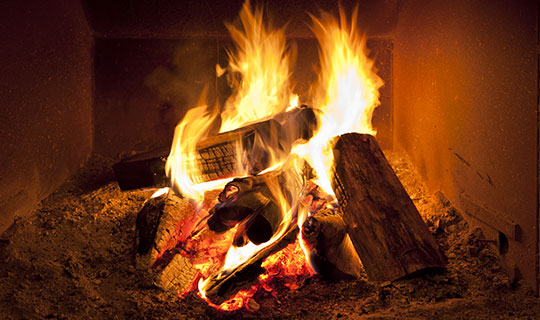
There is no need to suffer from holiday catastrophes that can be prevented. Take some time to read these prevention tips provided by Robin Lee, MD, FACS, Associate Director, The Burn Center at Cooperman Barnabas Medical Center so that with preparation and knowledge you can ensure a safe holiday season for you and your family.
RISK: Fires and Burns
Whenever people are inside trying to stay warm, there’s a risk of fire and smoke inhalation. Dr. Lee states that with increased activity in the kitchens during the holidays, you, or others in the kitchen, are at a higher risk for being burned.
PREVENTION:
- Make sure there are smoke detectors. Dr. Lee urges that these are especially important in the kitchen and bedrooms. Make sure the batteries are changed regularly.
- Have fire extinguishers. It’s always important to have one, specifically in the kitchen and if you have a working fireplace. It is also just as important to learn how to use one, recommends Dr. Lee, as the time to learn is not while the fire is burning. If a fire does start, the best thing you can do is get out and stay out.
- Consider LED candles. Dr. Lee shares that any celebratory occasion where candles are used for various reasons, religious or otherwise, has risk. LED candles look similar enough, and are a safe alternative, she suggests. You also don’t have to worry about blowing them out when you leave the room. If you have children, store matches and lighters in a locked cabinet, and teach them to stay away from fire.
- Be smart about space heaters. Keep them away from curtains and furniture and avoid putting them in places children or pets could topple them. Consider investing in the kind that will turn off automatically just in case you forget.
- Keep young children away from the kitchen. In case they sneak by, Dr. Lee says to make sure the handles of pots and pans are turned in or use the back burners, so kids don’t pull on them. If they are helping, make sure they are supervised at all times.
- Cook sober. Drinking while you prepare meals is a bad idea. In addition, don’t leave food unattended while it is cooking.
- Don’t wear loose clothing when cooking. Clothes can catch on fire when you are reaching over burners, especially when the stove controls are in back or the microwave is above the stove.
RISK: Endangered Pets
Dr. Lee reminds us that pets are especially vulnerable to accidents at this time of year as the kitchen is crowded, trees are decorated, and the candles are on display.
PREVENTION:
- Keep pets away from the kitchen. With all the aromas from the kitchen filling the house, even well-behaved pets will be challenged. Dr. Lee suggests trying to keep food out of reach, turn pot handles inward, and watch that hot liquids don’t splash or boil over.
- Watch candle placement. To ensure they are out of the way so that a curious cat or dog can’t reach them, try not to leave candles unattended, on a tablecloth that can be pulled or near items that could get knocked over.
- Be mindful of your tree location. Real holiday trees can not only dry out and catch on fire but are also something a pet might be tempted to hide in or reach for, especially in the case of a dangling ornament. Dr. Lee mentions it is important to keep the tree watered, away from candles or fireplaces, and be sure no wires are frayed.
RISK: Carbon Monoxide Poisoning
Carbon monoxide (CO) is a colorless, odorless, tasteless gas that’s produced by burning fossil fuels (gasoline, wood, propane and charcoal). When breathed in, CO replaces oxygen in red blood cells, causing illness and even death. Dr. Lee shares that warning signs include headache, nausea and has symptoms that can be mistaken for a common headache or viral illness.
PREVENTION:
- Install carbon monoxide detectors. If you haven’t already, now is a good time to do so, especially in the kitchen and bedrooms, says Dr. Lee. Make sure the batteries are changed regularly.
- Heat and cook with care. Don’t use a generator, charcoal grill, camp stove or other gasoline or charcoal-burning device inside your home, basement or garage, or near a window. Make sure to use an extension cord that is more than 20 feet long to keep a generator at a safe distance from the house.